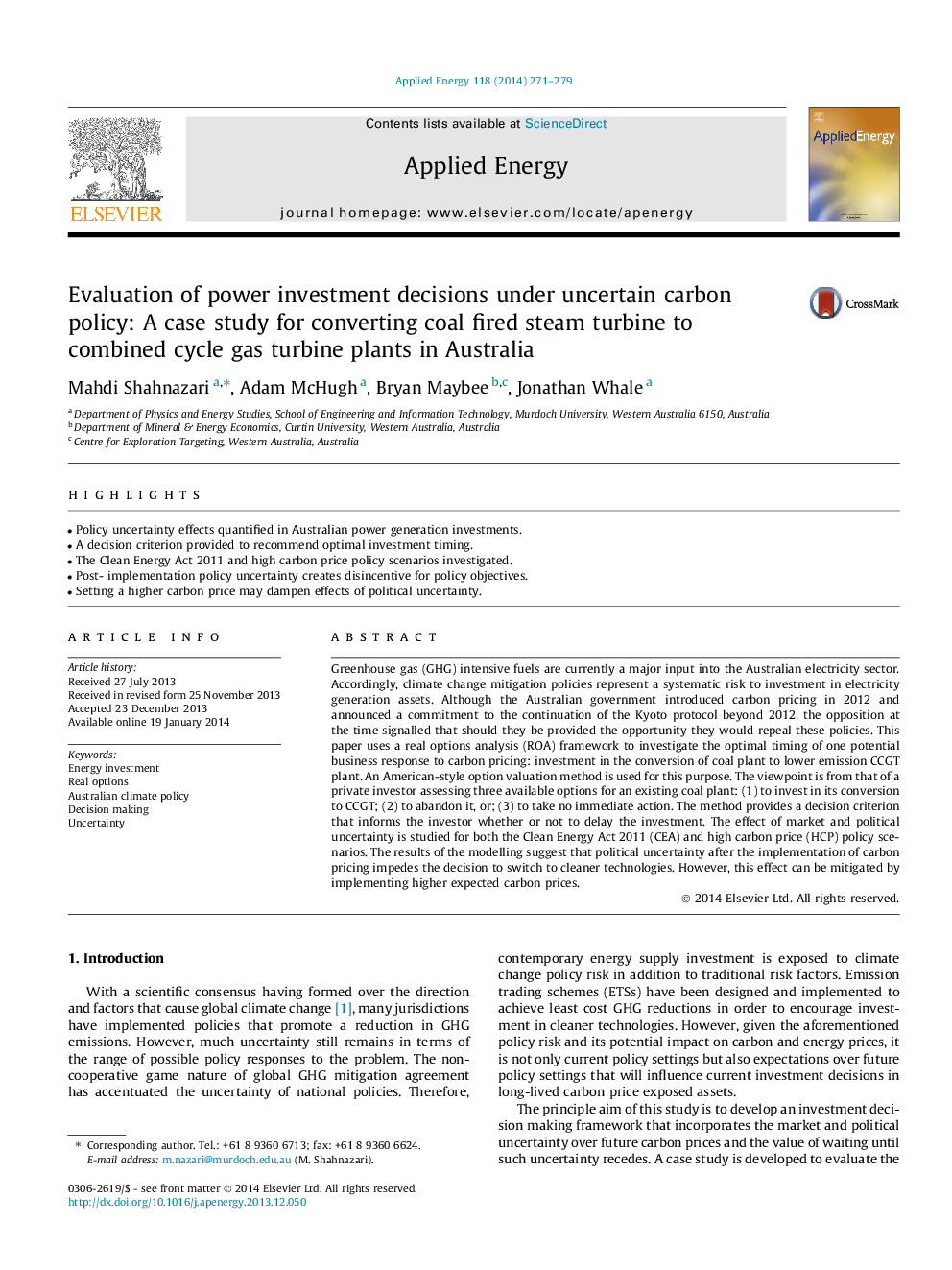| Article ID | Journal | Published Year | Pages | File Type |
|---|---|---|---|---|
| 242869 | Applied Energy | 2014 | 9 Pages |
•Policy uncertainty effects quantified in Australian power generation investments.•A decision criterion provided to recommend optimal investment timing.•The Clean Energy Act 2011 and high carbon price policy scenarios investigated.•Post- implementation policy uncertainty creates disincentive for policy objectives.•Setting a higher carbon price may dampen effects of political uncertainty.
Greenhouse gas (GHG) intensive fuels are currently a major input into the Australian electricity sector. Accordingly, climate change mitigation policies represent a systematic risk to investment in electricity generation assets. Although the Australian government introduced carbon pricing in 2012 and announced a commitment to the continuation of the Kyoto protocol beyond 2012, the opposition at the time signalled that should they be provided the opportunity they would repeal these policies. This paper uses a real options analysis (ROA) framework to investigate the optimal timing of one potential business response to carbon pricing: investment in the conversion of coal plant to lower emission CCGT plant. An American-style option valuation method is used for this purpose. The viewpoint is from that of a private investor assessing three available options for an existing coal plant: (1) to invest in its conversion to CCGT; (2) to abandon it, or; (3) to take no immediate action. The method provides a decision criterion that informs the investor whether or not to delay the investment. The effect of market and political uncertainty is studied for both the Clean Energy Act 2011 (CEA) and high carbon price (HCP) policy scenarios. The results of the modelling suggest that political uncertainty after the implementation of carbon pricing impedes the decision to switch to cleaner technologies. However, this effect can be mitigated by implementing higher expected carbon prices.
